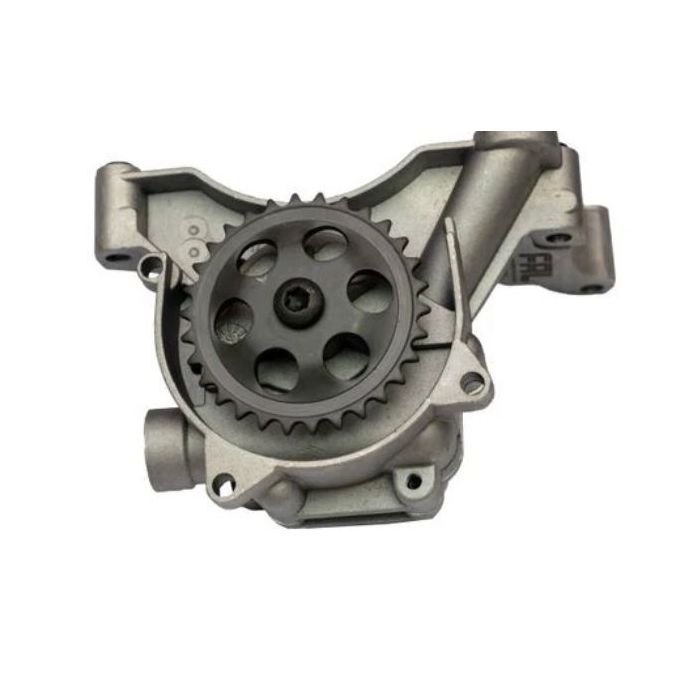Exactly How a Clp Engine Can Improve Efficiency in Different Industries
The introduction of CLP engines notes a significant shift in functional performance across various markets, driven by their capacity to optimize fuel usage and minimize downtime. As companies progressively focus on sustainability along with performance, the role of CLP engines becomes also more crucial.
Overview of CLP Engines
CLP engines, or Continual Fluid Propellant engines, stand for a considerable development in propulsion technology, specifically for room applications. These engines use a constant feed system that allows for the sustained expulsion of propellant, bring about improved effectiveness and performance contrasted to typical strong or hybrid propulsion systems. By preserving a continuous circulation of fluid propellant, CLP engines can accomplish more specific thrust control, which is essential for steering spacecraft in various goal situations.
The design of CLP engines incorporates advanced products and ingenious gas administration systems. clp engine. This results in decreased weight and increased integrity, vital factors for long-duration area missions. In addition, the continuous procedure reduces the threat of burning instability, a common difficulty in conventional rocket engines.

Advantages in Production
The production of Constant Liquid Propellant (CLP) engines provides numerous significant benefits that improve both effectiveness and cost-effectiveness. One of the primary benefits is the structured manufacturing procedure, which minimizes the intricacy connected with conventional propulsion systems. By utilizing liquid propellant, manufacturers can attain better accuracy in engine performance, leading to optimized power result and minimized waste.
Furthermore, CLP engines facilitate a greater level of modularity, permitting easier integration right into different production lines. This versatility can substantially lower preparations and improve overall functional versatility. The use of CLP modern technology also has a tendency to reduce the demand for substantial maintenance as a result of fewer relocating parts, which converts right into reduced downtime and functional costs.

Applications in Logistics
Leveraging Constant Fluid Propellant (CLP) engines in logistics uses substantial benefits in functional performance and integrity. These about his engines give a robust option for different transport requirements, allowing the seamless motion of products across large distances. The fundamental style of CLP engines permits regular power outcome, which equates into smoother and much more predictable transportation timetables.
Among the crucial applications of CLP engines in logistics remains in durable products transportation, where they can drive both ground and aerial vehicles. Their capability to preserve high performance under varying lots problems makes certain that shipment timelines are satisfied, consequently improving consumer contentment. In addition, CLP engines can be integrated into automated logistics systems, facilitating real-time monitoring and enhancing path preparation.
In addition, the durability of CLP engines lowers upkeep downtime, allowing logistics firms to maximize their functional abilities. This is particularly valuable in warehousing continue reading this operations, where performance in managing and carrying goods is essential. As logistics remains to evolve, the assimilation of CLP engines represents a forward-thinking strategy that not only boosts performance but additionally supports the sector's growing needs for reliability and rate.
Effect On Power Performance
Just How do Continual Liquid Propellant (CLP) engines improve energy effectiveness in transport? CLP engines utilize a regular flow of fluid fuel, maximizing burning processes and preserving a secure thrust outcome. This style decreases energy browse around this web-site losses connected with typical combustion engines, where gas shipment can differ and cause inadequacies.
The constant procedure of CLP engines permits a more effective thermal cycle, causing greater certain impulse compared to conventional engines. clp engine. This translates to decreased gas consumption for the same amount of job done, significantly lowering operational prices across different transport sectors, including air travel and maritime markets
In addition, the ability of CLP engines to maintain ideal efficiency under differing load conditions reduces the need for frequent acceleration and deceleration, even more improving fuel effectiveness. Enhanced power performance not just adds to set you back financial savings yet additionally brings about decrease greenhouse gas exhausts, straightening with international sustainability goals.
Future Trends and Innovations
Emerging improvements in Constant Liquid Propellant (CLP) engine innovation guarantee to transform the landscape of transportation efficiency and sustainability. As industries pivot towards greener choices, CLP engines stand at the center, incorporating ingenious materials and design methodologies that enhance performance while minimizing ecological effect.
One of the most appealing patterns is the fostering of hybrid systems that combine CLP engines with renewable power sources. This synergy can maximize fuel usage and reduce emissions, straightening with worldwide sustainability goals. Developments in computational fluid characteristics (CFD) are facilitating the layout of more aerodynamically efficient engines, leading to minimized drag and enhanced fuel efficiency.
Furthermore, the advancement of smart surveillance systems is readied to boost functional effectiveness. These systems leverage information analytics and IoT technology to optimize engine efficiency in real-time, ensuring that the engines run within their most efficient specifications.
As study remains to check out different propellant formulations-- such as biofuels and artificial fuels-- the future of CLP engines looks encouraging. By harnessing these advancements, industries can not only boost their efficiency yet also contribute dramatically to a cleaner, much more lasting future in transport.
Conclusion
In conclusion, CLP engines represent a considerable improvement in effectiveness across several markets. The combination of advanced materials and fewer relocating components minimizes upkeep needs, while placement with sustainability objectives settings CLP engines as a critical technology for the future.